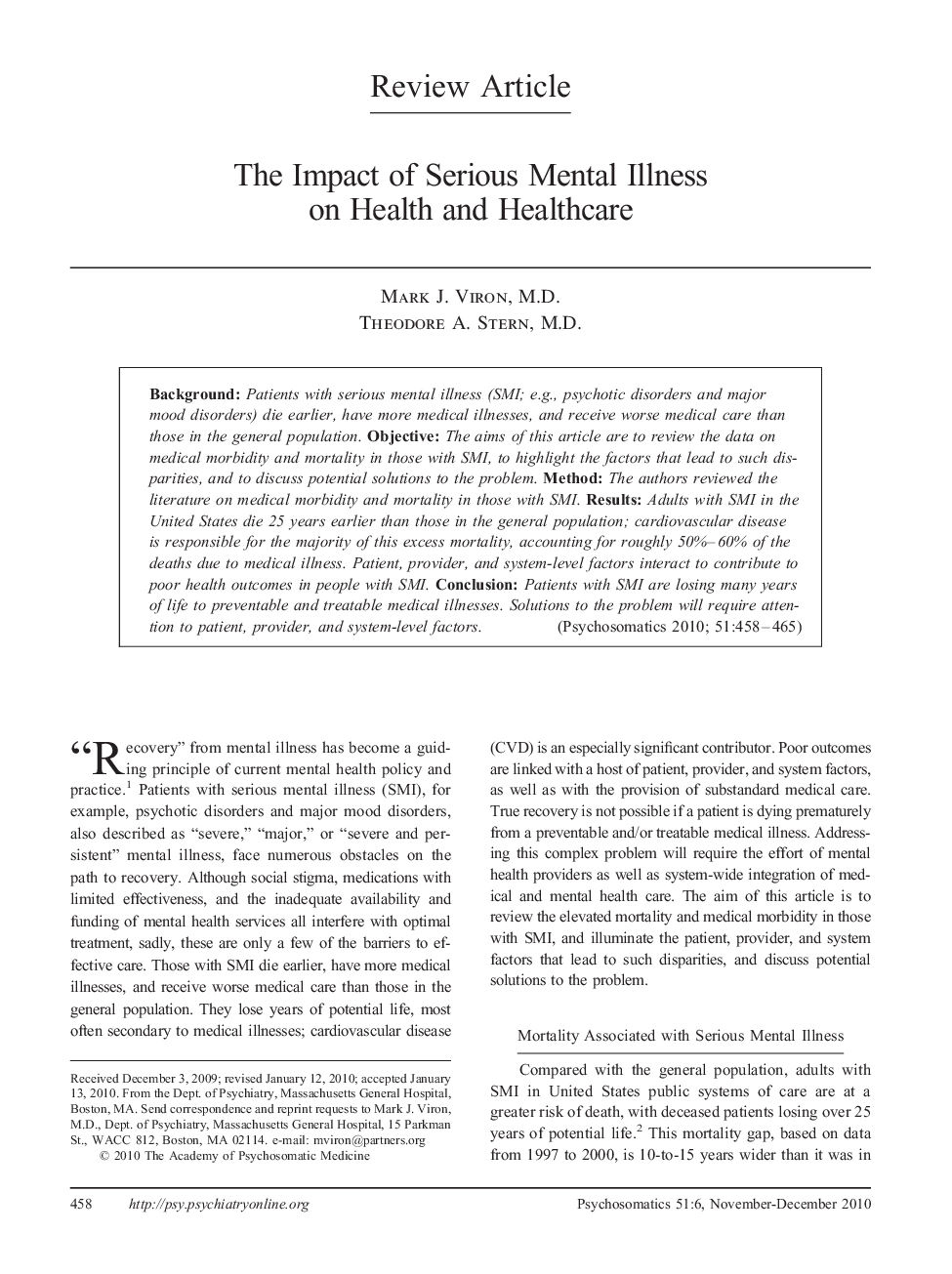| کد مقاله | کد نشریه | سال انتشار | مقاله انگلیسی | نسخه تمام متن |
|---|---|---|---|---|
| 339222 | 548058 | 2010 | 8 صفحه PDF | دانلود رایگان |

BackgroundPatients with serious mental illness (SMI; e.g., psychotic disorders and major mood disorders) die earlier, have more medical illnesses, and receive worse medical care than those in the general population.ObjectiveThe aims of this article are to review the data on medical morbidity and mortality in those with SMI, to highlight the factors that lead to such disparities, and to discuss potential solutions to the problem.MethodThe authors reviewed the literature on medical morbidity and mortality in those with SMI.ResultsAdults with SMI in the United States die 25 years earlier than those in the general population; cardiovascular disease is responsible for the majority of this excess mortality, accounting for roughly 50%–60% of the deaths due to medical illness. Patient, provider, and system-level factors interact to contribute to poor health outcomes in people with SMI.ConclusionPatients with SMI are losing many years of life to preventable and treatable medical illnesses. Solutions to the problem will require attention to patient, provider, and system-level factors.
Journal: Psychosomatics - Volume 51, Issue 6, November–December 2010, Pages 458–465